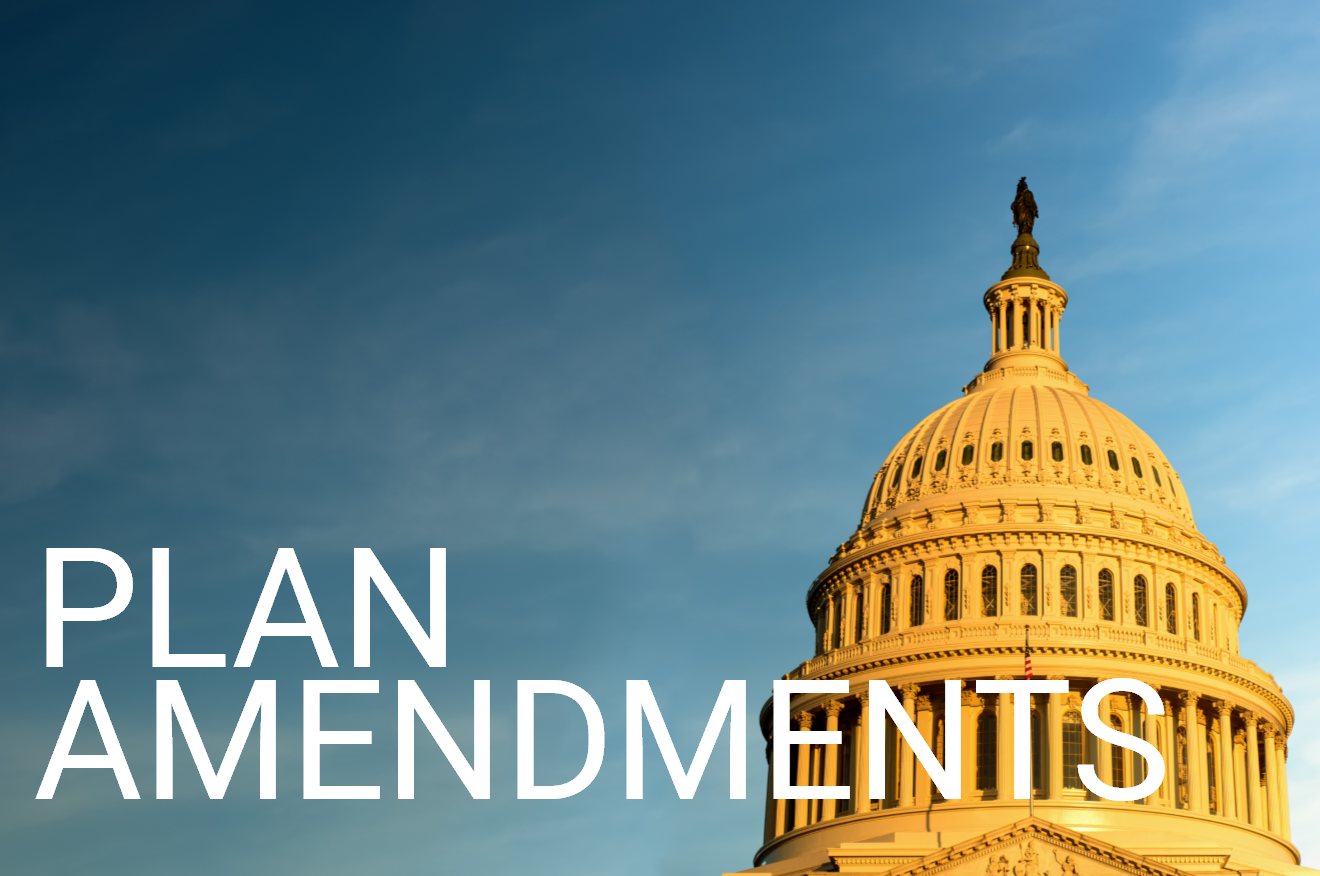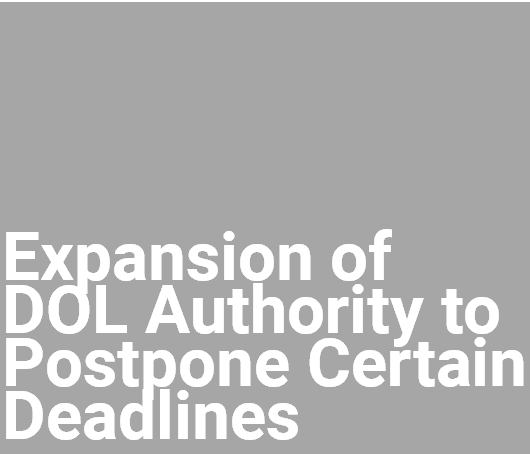
The CARES Act (or otherwise known as the Stimulus Bill) was signed into law today - March 27th, 2020.
After intense negotiations, the $2 trillion stimulus bill, including retirement relief provisions supported by the American Retirement Association finally got passed. As for those retirement-based provisions, the final bill sticks closely to what was initially proposed by Senate Majority Leader Mitch McConnell (R-KY), including provisions to ease retirement plan hardship and loan rules to free up funds for individuals impacted by the pandemic and to provide relief from the required minimum distribution (RMD) rules. The bill also adds funding relief for single-employer defined benefit plans.
Below are the key provisions affecting retirement plans.

The CARES Act waives the 10% early withdrawal penalty tax under Internal Revenue Code Section 72(t) on early withdrawals up to $100,000 from a retirement plan or IRA for an individual:
- who is diagnosed with COVID-19;
- whose spouse or dependent is diagnosed with COVID-19;
- who experiences adverse financial consequences as a result of being quarantined, furloughed, laid off, having work hours reduced, being unable to work due to lack of child care due to COVID-19, closing or reducing hours of a business owned or operated by the individual due to COVID-19; or
- other factors as determined by the Treasury Secretary.
The legislation also permits those individuals to pay tax on the income from the distribution ratably over a three-year period and allows individuals to repay that amount into the plan over the next three years (presumably filing for a tax deduction on the taxes they will have paid as a result of the premature distribution). Those repayments would not be subject to the retirement plan contribution limits.

H.R. 748 doubles the current retirement plan loan limits to the lesser of $100,000 or 100% of the participant’s vested account balance in the plan. Individuals with an outstanding loan from their plan with repayment due from the date of enactment of the CARES Act through Dec. 31, 2020, can delay their loan repayment(s) for up to one year.
Plan Amendments
The legislation further permits retirement plans to adopt these rules immediately, even if the plan does not currently allow for hardship distributions or loans, provided the plan is amended on or before the last day of the first plan year beginning on or after Jan. 1, 2022, or later if prescribed by the Treasury Secretary.
Temporary Waiver of Required Minimum Distribution Rules
H.R. 748 waives RMDs for the calendar year 2020 for DC plans, including 401(k), 403(b), 457(b) and IRA plans, allowing individuals to keep funds in their retirement plans. Under current law, individuals generally at age 72 must take an RMD from their DC plans and IRAs. The legislation also includes special rules regarding the waiver period too, in essence, hold harmless those individuals (and plans) who took advantage of the RMD waiver for 2020.

New to the bill is a provision to provide single-employer defined benefit plan funding relief by giving companies more time to meet their funding obligations by delaying the due date for any contribution otherwise due during 2020 until Jan. 1, 2021. At that time, contributions due earlier would be due with interest. The provision also provides that a plan’s status for benefit restrictions as of Dec. 31, 2019, will apply throughout 2020, such that a plan sponsor may elect to treat the plan’s adjusted funding target attainment percentage for the last plan year ending before Jan. 1, 2020, as the adjusted funding target attainment percentage for plan years which include the calendar year 2020.

The legislation provides the Department of Labor with expanded authority to postpone certain deadlines under ERISA. In general, the legislation increases the circumstances to go beyond a terroristic or military action to also include a public health emergency declared by the Secretary of Health and Human Services under the Public Health Service Act.
In a March 16 letter to the DOL and Treasury Department, the ARA pressed the agencies to provide relief from various filing requirements, including an automatic extension of the Form 5500 series for retirement plans, an extension to the deadline for correcting a failed ADP or ACP test and an extension of the period for distributing excess contributions and excess aggregate contributions under a plan, among others.

Moving beyond the CARES Act, the ARA continues to push for additional assistance, including defined contribution funding relief. Most recently, the ARA called on the Treasury Department to provide relief to help employers facing significant financial burdens relating to the Coronavirus, especially for retirement plans sponsored by small businesses. “The financial crisis facing employers might force them to terminate their plans rather than keeping them intact, but partially frozen, until the business recovers,” the ARA warned in a March 24 letter to Carol Weiser, Benefits Tax Counsel with the Department of Treasury.
Information sourced from Napa-net

